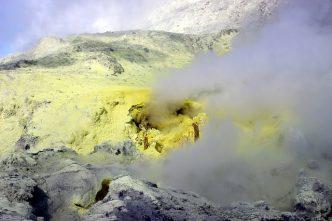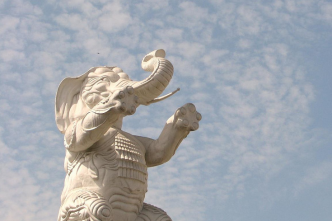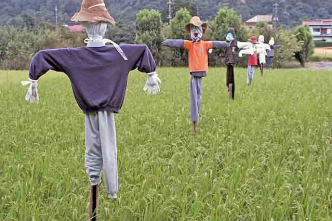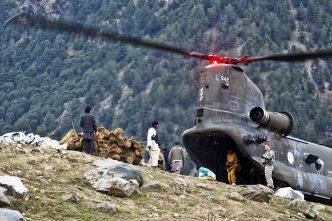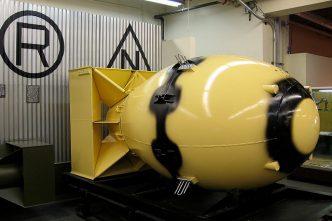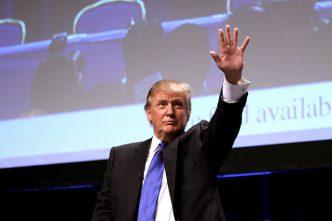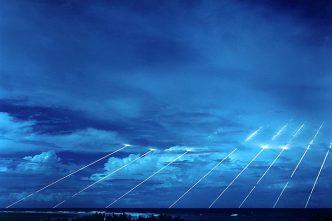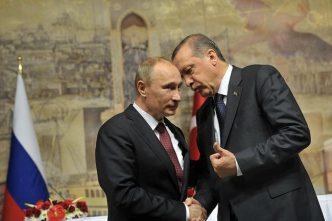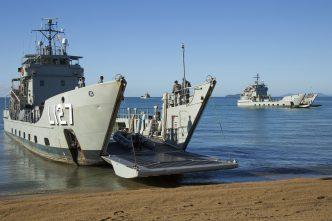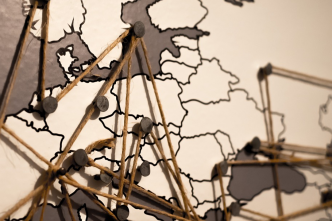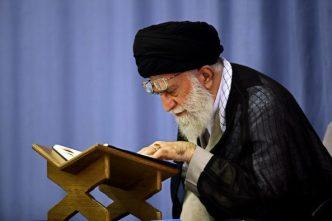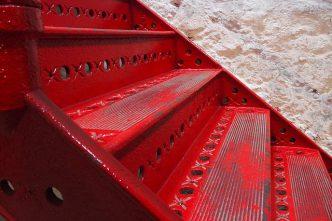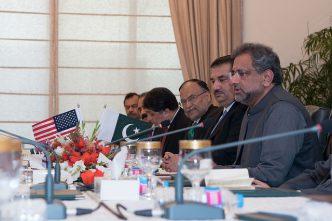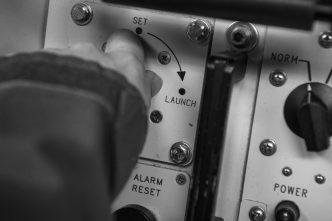After the Cold War ended, the existence of nuclear weapons on both sides wasn’t enough to stop the US from expanding NATO’s borders ever eastwards towards Russia’s borders, contrary to the terms on which Moscow …
Up in the Arcadia of the political afterlife, some great Oz leaders are sharing an ambrosia sherbet and reflecting on the recurring rhythms of Australia and the South Pacific over nearly 150 years. ‘The old …
Populists abhor restraints on the political executive. Since they claim to represent ‘the people’ writ large, they regard limits on their exercise of power as necessarily undermining the popular will. Such constraints can only serve …
As we consider whether Australia should obtain nuclear weapons, we need to ask who might subject us to nuclear blackmail. In the authoritative statement of China’s strategic vision in President Xi Jinping’s address to the …
Fake news has been at the forefront of public debate since November 2016, when it was discovered that thousands of fake news articles may have affected the outcome of the US federal election. Journalists discovered …
Harold Brown, the US defence secretary under President Jimmy Carter, was reported to have described the arms race between the United States and the Soviet Union in these terms: ‘When we build, they build. And …
In this three-part series, I examine the counter-arguments that proponents of Australia obtaining nuclear weapons need to address before the nation contemplates such a move. A heavyweight trio of Australia’s strategic and defence policy analysts …
Does Indonesia pose a strategic risk for Australia? The answer might be ‘no’ if one looks at the recently released Australian foreign policy white paper. It argues that Indonesia—along with Japan, India and South Korea—is …
Three recent articles in The Strategist about President Donald Trump’s Jerusalem declaration—by Peter Rodgers, Mike Scrafton and Richard Haass—demonstrate that we’re dealing with narratives, concepts and emotions that no logical arguments or facts can change …
Some of the most iconic—and perhaps misleading—news images of the 21st century were of smiling Iraqis holding up their purple-ink-stained index fingers to show that they had voted in their country’s January 2005 election. For …
Late last week, a ‘pre-decisional’ draft of the Trump administration’s forthcoming Nuclear Posture Review (NPR) was leaked to the Huffington Post. While it would be wrong to treat that draft as the final text—after all, …
For the past 50 years in Asia, the economists have consistently beaten the strategists in the crystal ball stakes. Over those decades, you’d have done better going to an economist rather than a strategist to …
Recep Tayyip Erdoğan has redefined Turkey’s foreign policy, making it more independent and nationalist. The key to the new policy is a shift in Turkey’s security concerns, as the country has become less fearful of …
In an interview in Australian Foreign Affairs, Paul Keating noted that China under Xi Jinping was looking to craft a new form of global governance, rejecting the notion of China as a strategic client of …
A renewed sense of urgency over European defence has come only after a cumulative series of strategic shocks. The European powers have long resisted supranational defence institutions, instead depending heavily on NATO and the US. …
We’re barely into 2018 and two major crises confront the world, both with significant nuclear dimensions. On the Korean peninsula, Kim Jong-un has once again reinforced his growing nuclear weapons capability and apparent willingness to …
The demonstrations, which began in Iran’s northern city of Mashhad and quickly spread to other cities, were reportedly triggered by a surge in food prices, but they’ve taken on a broader economic and political character …
Paul Dibb and Richard Brabin-Smith’s recent ASPI paper, Australia’s management of strategic risk in the new era, is an important strategic piece, which isn’t surprising given its authors. Australia often produces incisive and well-argued strategic-level …
Pakistan has now joined the ranks of countries hit by one of US President Donald Trump’s characteristic tweet storms. In his first tweet of 2018, Trump declared that the United States has ‘foolishly’ given Pakistan …
Nuclear weapons and their role in Australia’s future defence are being openly debated by some key thinkers in Canberra. A recent ASPI Strategic Insights paper by Paul Dibb and Richard Brabin-Smith highlights a worsening security outlook …
